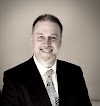Knowledge itself is an intangible asset in the first place and despite some excellent work by Professor Karl-Eric Sveiby, Thomas Stewart and Professor Bill Martin (RMIT) and others like them, a lot of company boards and an even larger numbers of accountants still struggle to find a place for it in business plans and balance sheets.
Some say it is not a hard asset so it is impossible to place value against it. Others claim that while it costs real dollars to implement knowledge strategies, the use of the transferred knowledge is so complex in nature that the outcome is unmeasurable.
Are you stuck for ideas or would like to share a past failure so others can learn? Check out The Mistake Bank - a web site with stories of failures, slip-ups and mistakes you might like to avoid.






3 Comments
Regards, John
I actually blogged earlier about the concept of it being OK to say "I don't know" and The Mistake Bank goes hand in hand with that sort of thinking.
Wish I'd thought of the idea myself!
Thanks, I didn't know The Mistake Bank. What way to learn better than by mistakes? BTW, some time ago ABN AMRO started the Institute of Brilliant Failures: http://www.briljantemislukkingen.nl/page/engelse-pagina/. Unfortunately, the content is in Dutch. But here's an English article by Gill Corkendale about this institute, published at the site of HBR: http://discussionleader.hbsp.com/corkindale/2007/06/in_praise_of_brilliant_failure.html.
Mireille